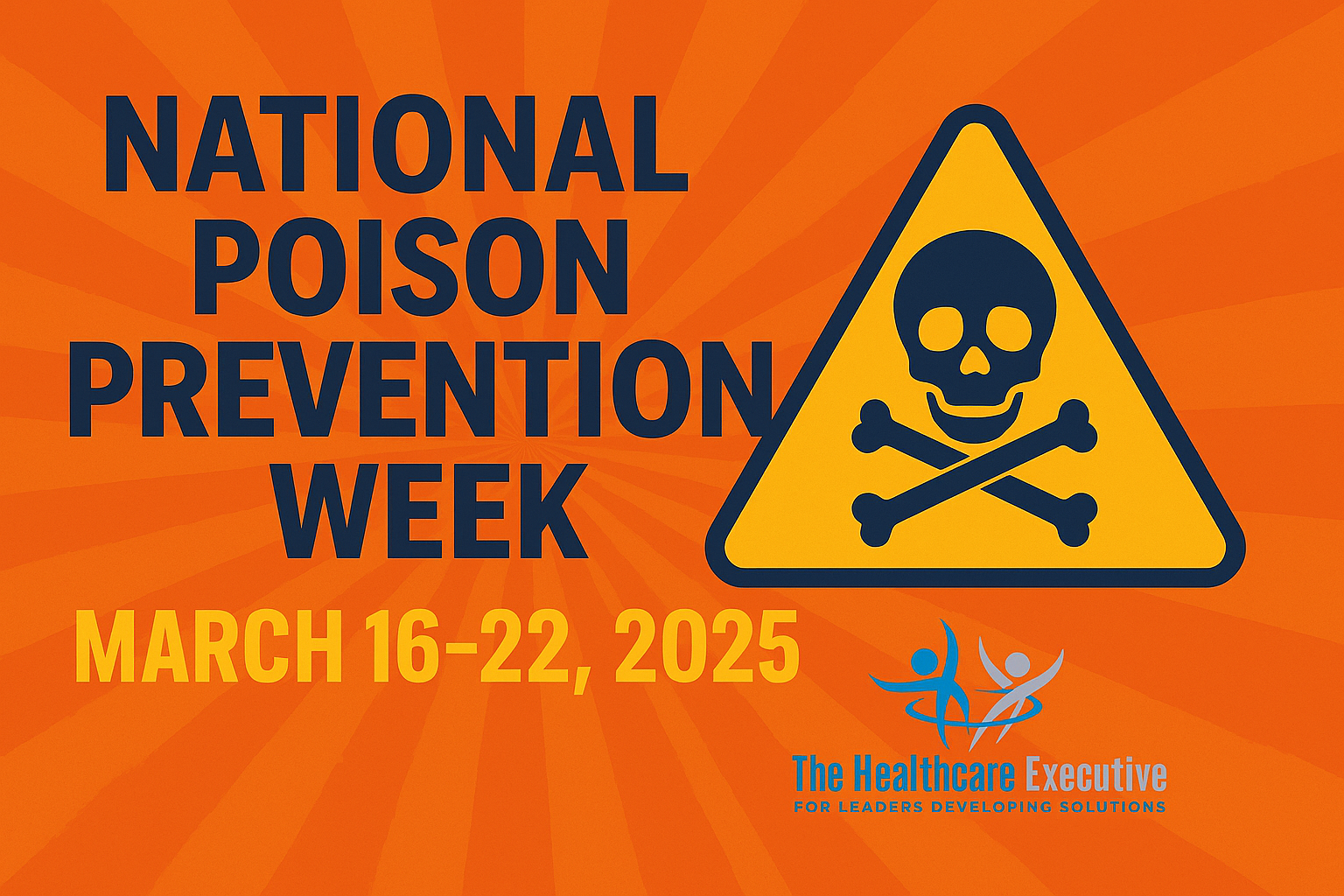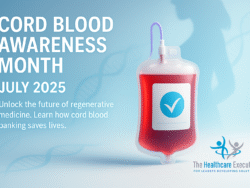National Poison Prevention Week 2025: Hospital Safety

- Posted by Greg Wahlstrom, MBA, HCM
- Posted in Health Observance Calendar
Executive Leadership Must Address Exposure Risks, Educate Communities, and Prevent Toxic Harm in Care Settings
Published: March 16, 2025
National Poison Prevention Week, observed from March 16–22, 2025, brings critical attention to the hidden dangers of chemical, pharmaceutical, and environmental toxins in both hospital and home settings. For healthcare executives, this awareness week offers a timely opportunity to reassess internal safety protocols and lead public education efforts. According to the Poison Help program by HRSA, over 2 million poisonings are reported annually, with children under six being the most affected group. In hospital environments, exposure to cleaning agents, lab chemicals, and even expired medications poses a real threat to staff and patients alike. At Mass General Hospital, routine poison drills and inventory audits have become part of systemwide safety procedures. Executives must ensure a clear chain of communication for handling toxic exposures and align their organizations with regional poison control centers. Organizational leadership during this week sends a strong message: every dose, surface, and substance matters.
In healthcare facilities, the management of controlled substances and hazardous materials demands consistent oversight and executive involvement. Many hospitals rely on environmental services and pharmacy teams to maintain regulatory compliance, but strategic leadership must guide investments in staff training and reporting tools. The CDC’s chemical safety division offers extensive resources for reducing accidental exposure in healthcare settings. Some systems, such as Children’s Hospital of Philadelphia, integrate poison prevention messaging into pediatric care and discharge planning. Executive dashboards should track poisoning incident rates and signal when action is needed at the facility or unit level. More importantly, CEOs must support creating a culture of accountability that treats near misses and exposures as opportunities for improvement. Preventing a single toxic exposure is a leadership achievement with measurable impact.
Public-facing outreach is another essential function for hospitals during National Poison Prevention Week. Many poisonings occur at home, often due to improperly stored medications, unlabeled containers, or outdated household chemicals. Hospital systems must use their platforms to educate the public through webinars, social media campaigns, and in-person workshops. At Houston Methodist, partnerships with local school districts and fire departments have helped deliver poison prevention curricula to thousands of households. Executive leaders can direct marketing teams to spotlight poison safety in community newsletters and wellness programming. These outreach efforts demonstrate the hospital’s role beyond acute care and reinforce its commitment to proactive, preventive strategies. A strong public health message can build trust and reduce emergency department visits related to accidental ingestion and exposure. Prevention starts with visibility—and visibility begins with leadership.
Equity in poison prevention is also a growing concern. Underserved populations may live in older housing with lead pipes, lack access to poison control resources, or work in high-risk occupations. Hospital executives must evaluate whether their patient education materials are accessible across languages and literacy levels. The Prevent Child Injury campaign offers free toolkits to help reach vulnerable families and expand safety awareness. Leaders should consider targeted initiatives, such as mobile outreach units or poison prevention kits for low-income communities. Staff training must also reflect cultural sensitivity to ensure every patient feels empowered to ask about medication risks and home safety. In this way, poison prevention becomes not only a public health strategy but also an instrument of health equity. Leaders who understand the social determinants of exposure are best positioned to mitigate them.
National Poison Prevention Week 2025 is a clarion call for hospital executives to take a more active stance in exposure risk reduction and community education. From facility audits to strategic outreach, hospital leadership sets the tone for how seriously these threats are addressed. CEOs and senior leaders must ensure that poison prevention is not a once-a-year topic but a continual priority embedded in the organization’s culture. When safety is seen as everyone’s responsibility—from the boardroom to the breakroom—systems can operate with greater vigilance and resilience. Effective leadership requires not just reaction, but anticipation. In the case of poison safety, the best outcomes are the ones that never make it into the incident report.
Discover More on Preventive Safety Leadership
Explore additional ways your leadership team can protect hospital staff and patients through forward-thinking safety initiatives.
Internal Links
- The 2025 Regulatory Roadmap: What CEOs Must Prepare For Now
- Hospital Leadership in Crisis: What Every CEO Must Do in 2025



